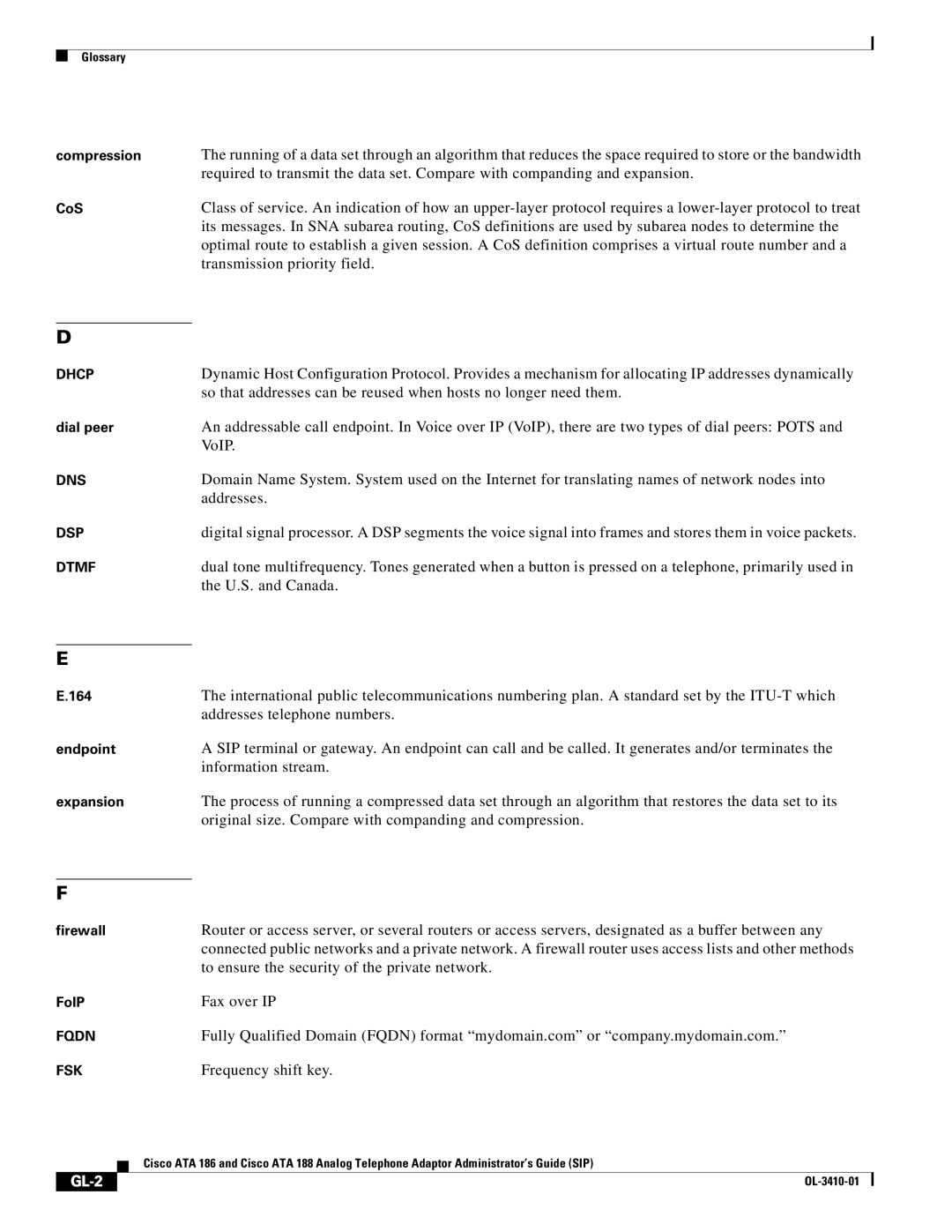
Glossary
compression
CoS
The running of a data set through an algorithm that reduces the space required to store or the bandwidth required to transmit the data set. Compare with companding and expansion.
Class of service. An indication of how an
D
DHCP | Dynamic Host Configuration Protocol. Provides a mechanism for allocating IP addresses dynamically |
| so that addresses can be reused when hosts no longer need them. |
dial peer | An addressable call endpoint. In Voice over IP (VoIP), there are two types of dial peers: POTS and |
| VoIP. |
DNS | Domain Name System. System used on the Internet for translating names of network nodes into |
| addresses. |
DSP | digital signal processor. A DSP segments the voice signal into frames and stores them in voice packets. |
DTMF | dual tone multifrequency. Tones generated when a button is pressed on a telephone, primarily used in |
| the U.S. and Canada. |
E
E.164 | The international public telecommunications numbering plan. A standard set by the |
| addresses telephone numbers. |
endpoint | A SIP terminal or gateway. An endpoint can call and be called. It generates and/or terminates the |
| information stream. |
expansion | The process of running a compressed data set through an algorithm that restores the data set to its |
| original size. Compare with companding and compression. |
F
firewall | Router or access server, or several routers or access servers, designated as a buffer between any |
| connected public networks and a private network. A firewall router uses access lists and other methods |
| to ensure the security of the private network. |
FoIP | Fax over IP |
FQDN | Fully Qualified Domain (FQDN) format “mydomain.com” or “company.mydomain.com.” |
FSK | Frequency shift key. |
Cisco ATA 186 and Cisco ATA 188 Analog Telephone Adaptor Administrator’s Guide (SIP)
|
|
|
|
|
|
